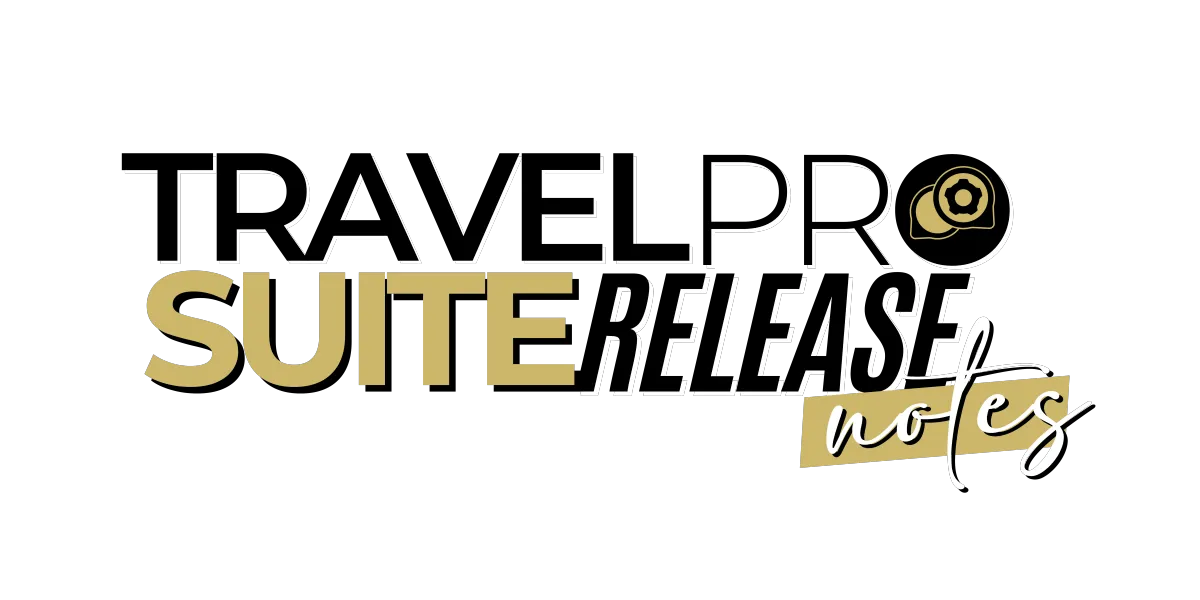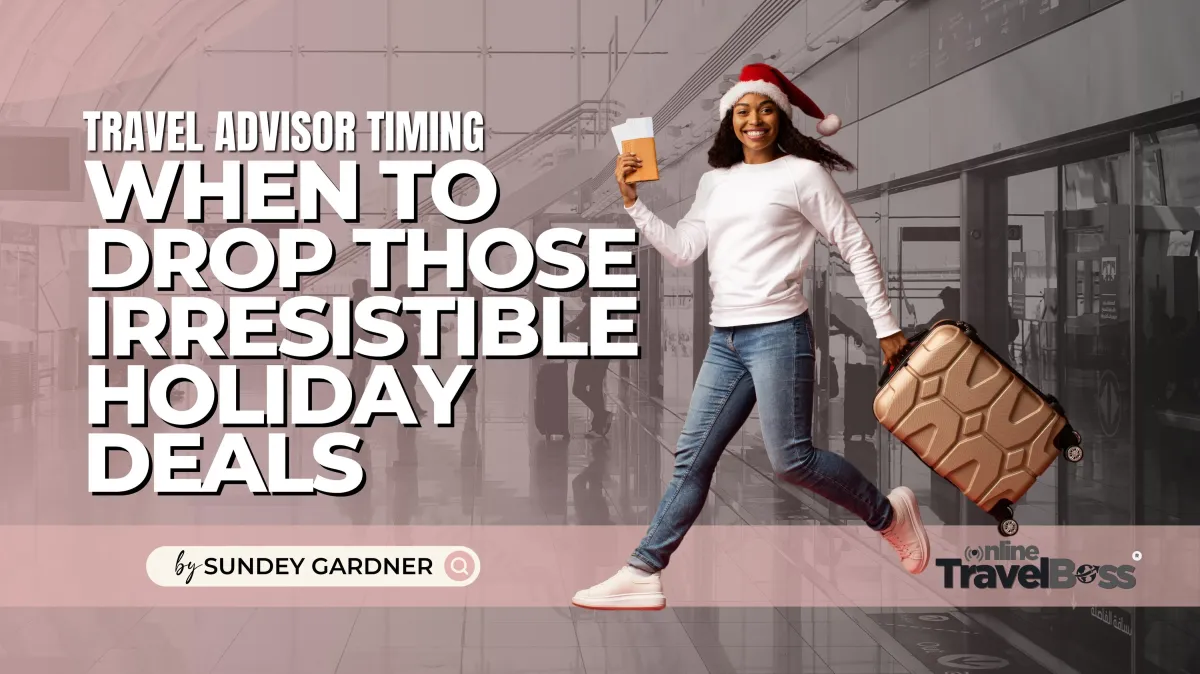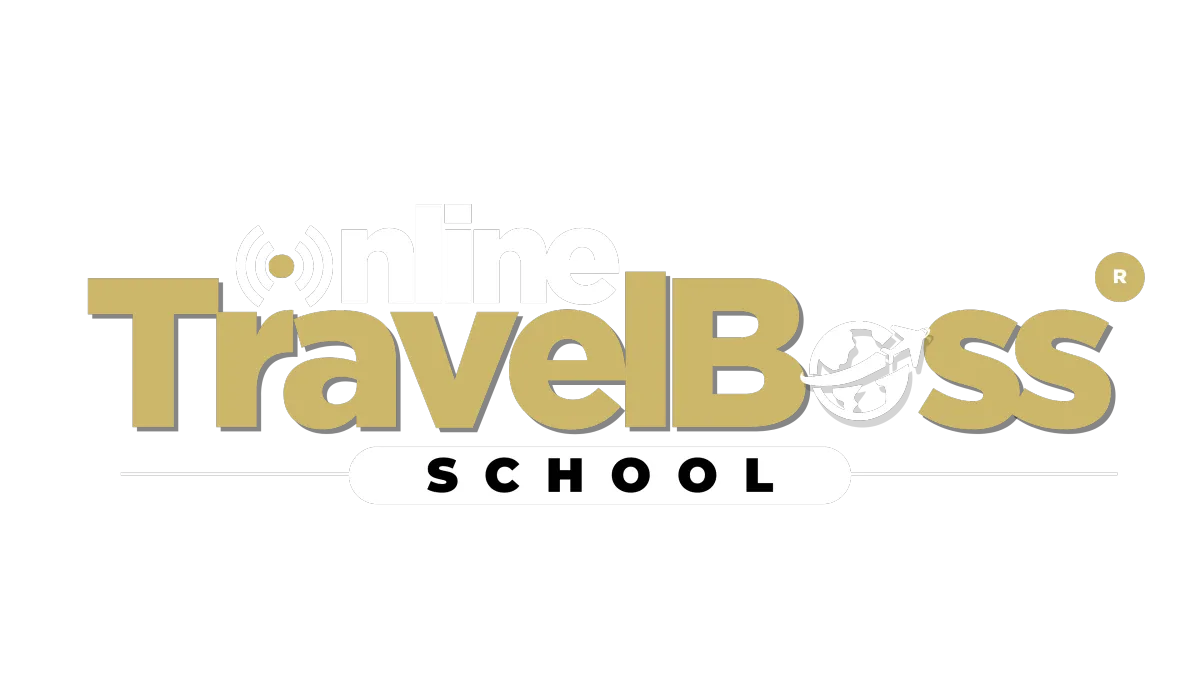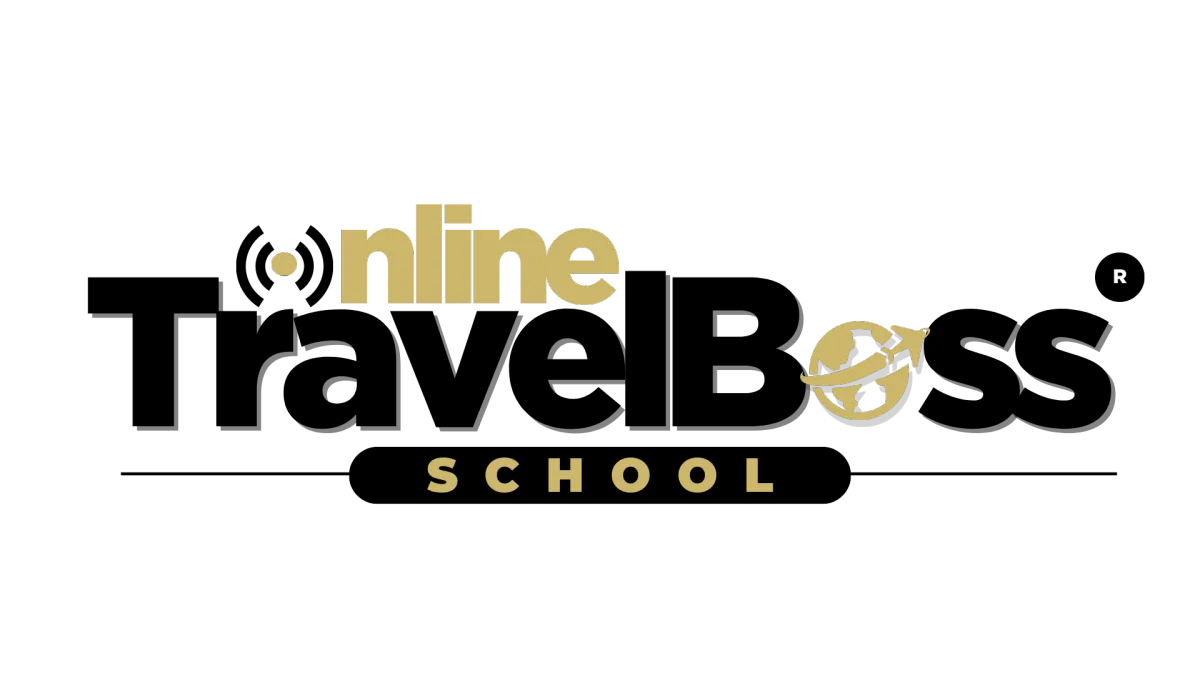

Perfect Timing for Deals
In the world of travel advising, timing is everything. It's not just about having fantastic holiday deals; it's about knowing when to unveil them. The right timing can make the difference between your holiday packages soaring to the top of travelers' wish lists or getting lost in the shuffle. In this comprehensive guide, we'll delve deep into the art and science of timing your holiday deals just right, so they capture attention and resonate with your target audience.

Before we delve into the specifics, let's understand why timing is crucial for travel advisors:
1. Buyer Behavior
Consumer behavior varies throughout the year, and this is especially true when it comes to holiday travel planning. Travelers often start researching and booking their trips months in advance, with distinct peaks in activity. Understanding these patterns can help you align your promotional efforts with when potential customers are most receptive.
For instance, the period between January and March sees a surge in travel planning. This is when people are recovering from the holiday season and looking forward to their next getaway. It's an excellent time to release early bird deals and capture the attention of those who plan well in advance.
In contrast, the period just before the holiday season, usually from October to December, witnesses a flurry of last-minute bookings. This is when the procrastinators come into play. Understanding these fluctuations can help you time your promotions effectively.
2. Competitor Trends
Your competitors are also vying for the attention of holiday travelers. Being aware of their strategies and the timing of their promotions can give you a competitive edge. Sometimes, it's about being the early bird that catches the worm.
Keeping tabs on your competitors' timing can help you make informed decisions. If you notice that your competitors release their holiday deals in July, you might want to consider releasing yours in June to get a jumpstart on the competition.
3. Historical Sales Data
Reviewing your historical sales data can reveal valuable insights into when your holiday packages performed the best. Identifying trends and patterns can guide your timing decisions for future promotions.
Look back at your past promotions and sales figures. When did you experience the highest conversion rates? When did you see a spike in bookings? Analyzing this data can provide you with a roadmap for when to launch your holiday deals.

1. Early Bird Offers (6-9 Months Before the Holidays)
For some travelers, holiday planning starts early, especially for popular destinations or peak travel periods. Offering early bird deals about six to nine months before the holiday season can attract these early planners. Consider targeting this segment with discounts, perks, or exclusive packages to secure their bookings ahead of time.
Early bird deals work exceptionally well for travelers who like to plan meticulously. They appreciate the cost savings and availability that booking months in advance can offer. Highlight the benefits of securing their dream holiday early, such as better flight options, preferred accommodations, and peace of mind knowing their plans are in place.
2. Pre-Holiday Countdown (3-6 Months Before)
As the holiday season approaches, more travelers start actively planning their trips. This is the time to ramp up your promotions and launch special offers, discounts, and limited-time deals. Highlight the uniqueness of your packages and emphasize the advantages of booking in advance.
During this period, consider running themed campaigns that create a sense of anticipation. Countdown promotions, where you unveil a new deal or package every week, can keep travelers engaged and eager to see what's next. Use social media, email marketing, and your website to build excitement.
3. Last-Minute Deals (1-3 Months Before)
Don't forget about the procrastinators! Many travelers wait until the last minute to secure their holiday plans. Offering last-minute deals, especially for unsold inventory, can be a strategic move. Highlight the urgency and scarcity of these offers to encourage quick bookings.
Last-minute deals appeal to spontaneous travelers who are comfortable making decisions on the fly. Emphasize that your last-minute packages provide excellent value for those who are flexible with their travel dates and accommodations.
4. Holiday-Themed Promotions (During the Holidays)
During the actual holiday season, consider running holiday-themed promotions. Offer unique experiences, such as festive tours, special dinners, or holiday-themed packages. Emphasize the convenience and stress-free nature of booking a complete holiday package during a busy time.
Holiday-themed promotions can tap into the emotions of the season. Highlight how your packages can create memorable holiday moments without the stress of planning. Use festive visuals and language to convey the holiday spirit and show travelers how your offerings can enhance their celebrations.
5. Post-Holiday Promotions (After the Holidays)
The holiday season doesn't end on the holiday itself. Many people enjoy post-holiday getaways to relax and unwind. Consider launching post-holiday promotions, targeting those looking for a break after the festivities. Highlight the peace and quiet of a post-holiday escape.
Post-holiday promotions can help you extend the holiday season and capture travelers who want to continue celebrating or decompressing. Market your packages as a way to beat the post-holiday blues or as a reward for surviving the hectic season.

Timing is just one piece of the puzzle. To create irresistible holiday deals, follow these additional tips:
1. Know Your Audience
Understanding your target audience is crucial. Different demographics may respond differently to timing and promotions. Consider conducting surveys or analyzing customer data to tailor your offers to your audience's preferences.
2. Offer Value
Regardless of when you release your holiday deals, they must offer real value to travelers. Ensure that your packages include attractive features like discounted airfare, exclusive experiences, or convenient add-ons that make the booking irresistible.
3. Create Compelling Content
Your marketing materials, including website content, social media posts, and email campaigns, should be compelling and visually appealing. Use high-quality images, persuasive language, and engaging storytelling to showcase the experiences your packages offer.
4. Leverage Technology
Utilize technology to your advantage. Implement booking and reservation systems that make it easy for travelers to secure their holiday packages. Use data analytics to refine your timing and promotional strategies continually.
5. Monitor and Adjust
The travel industry is dynamic, and trends can change quickly. Continuously monitor the performance of your holiday promotions and be prepared to adjust your timing and strategies based on real-time data and feedback from customers.

Timing is a critical factor in the success of your holiday deals as a travel advisor. By understanding buyer behavior, keeping an eye on competitor trends, and analyzing historical sales data, you can develop a strategic roadmap for releasing your holiday packages. Remember, it's not just about having great deals; it's about unveiling them when your audience is most eager to grab them.
So, whether you're targeting early birds, last-minute travelers, or those seeking post-holiday relaxation, timing your promotions effectively can help your holiday deals stand out and attract travelers ready to embark on their next adventure. Craft your promotions thoughtfully, knowing your audience, offering value, creating compelling content, leveraging technology, and staying adaptable. With these strategies in place, you'll be well on your way to becoming a travel advisor who knows precisely when to drop those irresistible holiday deals.
Craving for more actionable strategies and proven tips? Scroll down a bit and quench Your thirst for Travel business knowledge by learning all about launching, operating, and effective marketing of a Travel business

Perfect Timing for Deals
In the world of travel advising, timing is everything. It's not just about having fantastic holiday deals; it's about knowing when to unveil them. The right timing can make the difference between your holiday packages soaring to the top of travelers' wish lists or getting lost in the shuffle. In this comprehensive guide, we'll delve deep into the art and science of timing your holiday deals just right, so they capture attention and resonate with your target audience.

Before we delve into the specifics, let's understand why timing is crucial for travel advisors:
1. Buyer Behavior
Consumer behavior varies throughout the year, and this is especially true when it comes to holiday travel planning. Travelers often start researching and booking their trips months in advance, with distinct peaks in activity. Understanding these patterns can help you align your promotional efforts with when potential customers are most receptive.
For instance, the period between January and March sees a surge in travel planning. This is when people are recovering from the holiday season and looking forward to their next getaway. It's an excellent time to release early bird deals and capture the attention of those who plan well in advance.
In contrast, the period just before the holiday season, usually from October to December, witnesses a flurry of last-minute bookings. This is when the procrastinators come into play. Understanding these fluctuations can help you time your promotions effectively.
2. Competitor Trends
Your competitors are also vying for the attention of holiday travelers. Being aware of their strategies and the timing of their promotions can give you a competitive edge. Sometimes, it's about being the early bird that catches the worm.
Keeping tabs on your competitors' timing can help you make informed decisions. If you notice that your competitors release their holiday deals in July, you might want to consider releasing yours in June to get a jumpstart on the competition.
3. Historical Sales Data
Reviewing your historical sales data can reveal valuable insights into when your holiday packages performed the best. Identifying trends and patterns can guide your timing decisions for future promotions.
Look back at your past promotions and sales figures. When did you experience the highest conversion rates? When did you see a spike in bookings? Analyzing this data can provide you with a roadmap for when to launch your holiday deals.

1. Early Bird Offers (6-9 Months Before the Holidays)
For some travelers, holiday planning starts early, especially for popular destinations or peak travel periods. Offering early bird deals about six to nine months before the holiday season can attract these early planners. Consider targeting this segment with discounts, perks, or exclusive packages to secure their bookings ahead of time.
Early bird deals work exceptionally well for travelers who like to plan meticulously. They appreciate the cost savings and availability that booking months in advance can offer. Highlight the benefits of securing their dream holiday early, such as better flight options, preferred accommodations, and peace of mind knowing their plans are in place.
2. Pre-Holiday Countdown (3-6 Months Before)
As the holiday season approaches, more travelers start actively planning their trips. This is the time to ramp up your promotions and launch special offers, discounts, and limited-time deals. Highlight the uniqueness of your packages and emphasize the advantages of booking in advance.
During this period, consider running themed campaigns that create a sense of anticipation. Countdown promotions, where you unveil a new deal or package every week, can keep travelers engaged and eager to see what's next. Use social media, email marketing, and your website to build excitement.
3. Last-Minute Deals (1-3 Months Before)
Don't forget about the procrastinators! Many travelers wait until the last minute to secure their holiday plans. Offering last-minute deals, especially for unsold inventory, can be a strategic move. Highlight the urgency and scarcity of these offers to encourage quick bookings.
Last-minute deals appeal to spontaneous travelers who are comfortable making decisions on the fly. Emphasize that your last-minute packages provide excellent value for those who are flexible with their travel dates and accommodations.
4. Holiday-Themed Promotions (During the Holidays)
During the actual holiday season, consider running holiday-themed promotions. Offer unique experiences, such as festive tours, special dinners, or holiday-themed packages. Emphasize the convenience and stress-free nature of booking a complete holiday package during a busy time.
Holiday-themed promotions can tap into the emotions of the season. Highlight how your packages can create memorable holiday moments without the stress of planning. Use festive visuals and language to convey the holiday spirit and show travelers how your offerings can enhance their celebrations.
5. Post-Holiday Promotions (After the Holidays)
The holiday season doesn't end on the holiday itself. Many people enjoy post-holiday getaways to relax and unwind. Consider launching post-holiday promotions, targeting those looking for a break after the festivities. Highlight the peace and quiet of a post-holiday escape.
Post-holiday promotions can help you extend the holiday season and capture travelers who want to continue celebrating or decompressing. Market your packages as a way to beat the post-holiday blues or as a reward for surviving the hectic season.

Timing is just one piece of the puzzle. To create irresistible holiday deals, follow these additional tips:
1. Know Your Audience
Understanding your target audience is crucial. Different demographics may respond differently to timing and promotions. Consider conducting surveys or analyzing customer data to tailor your offers to your audience's preferences.
2. Offer Value
Regardless of when you release your holiday deals, they must offer real value to travelers. Ensure that your packages include attractive features like discounted airfare, exclusive experiences, or convenient add-ons that make the booking irresistible.
3. Create Compelling Content
Your marketing materials, including website content, social media posts, and email campaigns, should be compelling and visually appealing. Use high-quality images, persuasive language, and engaging storytelling to showcase the experiences your packages offer.
4. Leverage Technology
Utilize technology to your advantage. Implement booking and reservation systems that make it easy for travelers to secure their holiday packages. Use data analytics to refine your timing and promotional strategies continually.
5. Monitor and Adjust
The travel industry is dynamic, and trends can change quickly. Continuously monitor the performance of your holiday promotions and be prepared to adjust your timing and strategies based on real-time data and feedback from customers.

Timing is a critical factor in the success of your holiday deals as a travel advisor. By understanding buyer behavior, keeping an eye on competitor trends, and analyzing historical sales data, you can develop a strategic roadmap for releasing your holiday packages. Remember, it's not just about having great deals; it's about unveiling them when your audience is most eager to grab them.
So, whether you're targeting early birds, last-minute travelers, or those seeking post-holiday relaxation, timing your promotions effectively can help your holiday deals stand out and attract travelers ready to embark on their next adventure. Craft your promotions thoughtfully, knowing your audience, offering value, creating compelling content, leveraging technology, and staying adaptable. With these strategies in place, you'll be well on your way to becoming a travel advisor who knows precisely when to drop those irresistible holiday deals.

Contact Us
Learn More
About The School
Courses M
Programs & Certificates
Media
Community
About The School
Courses M
Programs & Certificates
Media
©2023+ ONLINE TRAVEL BOSS ® SCHOOL FOR TRAVEL PROS
All Rights Reserved.
This site is not a part of the TravelJoy™ website or TravelJoy compaines. Additionally this site is NOT endorsed by TravelJoy™ in any way. TravelJoy™ is a trademark of TravelJoy.com


